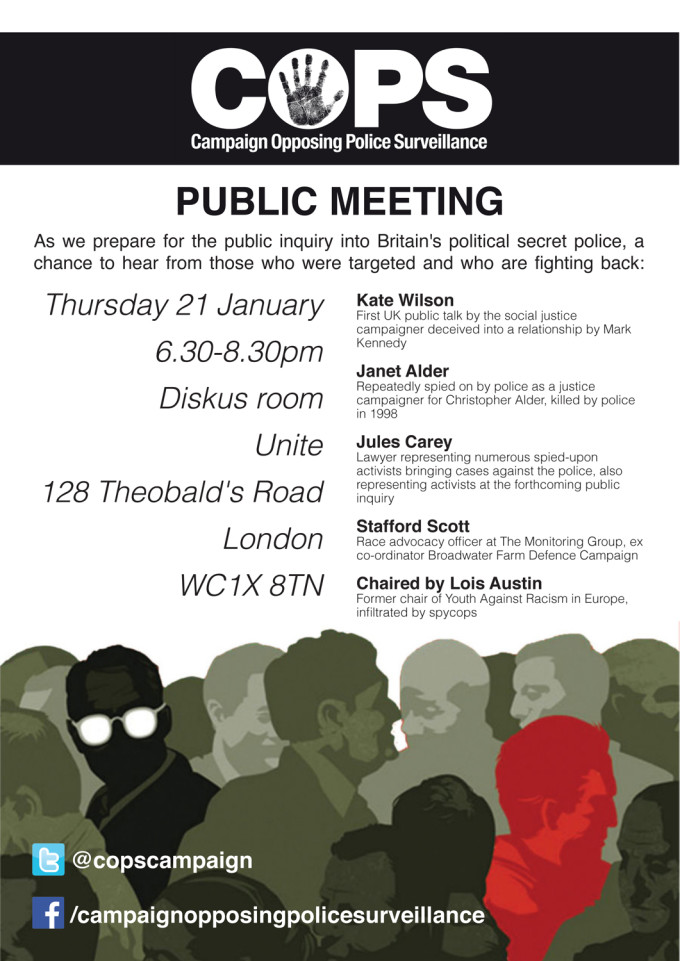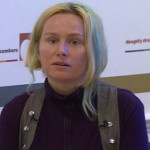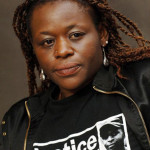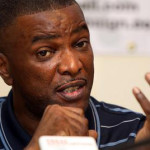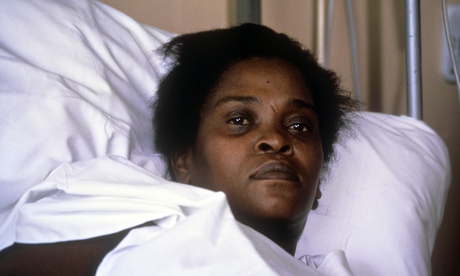Video: Voices of the Spied On
On 21 January we held a Voices of the Spied On public meeting, and videos of the four panellists’ speeches are now on our Youtube channel.
Janet Alder has been a tireless campaigner for justice for her brother Christopher who was killed by Humberside police in 1998. Police admit repeatedly putting her under surveillance, yet she has been denied ‘core participant’ status at the Pitchford inquiry into undercover policing.
Stafford Scott has been a key figure in numerous black community and family justice campaigns. He was co-ordinator of the Broadwater Farm Defence Campaign and is now race advocacy officer at the Monitoring Group.
The exposure of undercover police adds a new sinister dimension to the state repression he has devoted himself to opposing, with campaigns being infiltrated and undermined by officers.
Kate Wilson is an environmental and social justice activist who was deceived into a long-term relationship by undercover police officer Mark Kennedy. This, her first UK public talk on the subject, came five days after she won a gruelling four year legal battle to have the Metropolitan Police held accountable for Kennedy’s abuse.
Jules Carey is a human rights lawyer at Bindmans of London, representing many of the people targeted by Britain’s political secret police.
His clients include Jacqui, the first case the Met settled with a woman deceived into a relationship by an undercover officer, and other similar clients whose cases are ongoing. He also represents Barbara Shaw, mother of Rod Richardson, a dead child whose identity was stolen by an undercover police officer.
Here he talks about the forthcoming Pitchford Inquiry into undercover policing.

